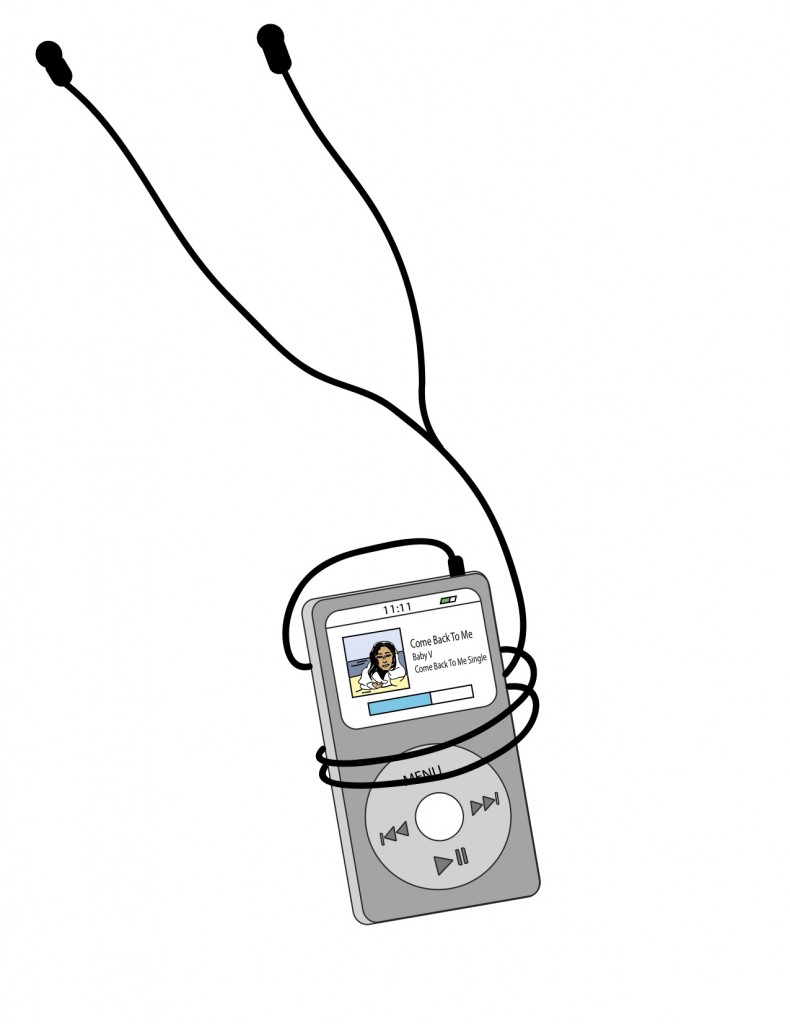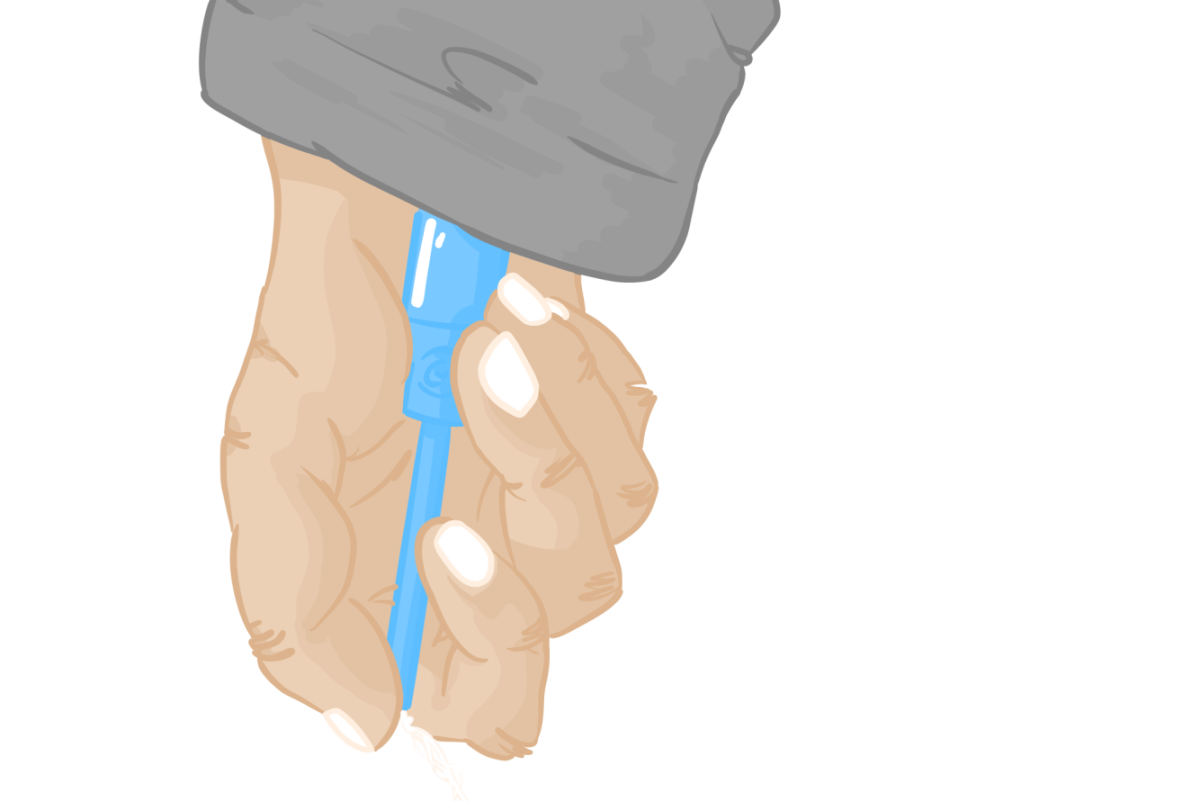Music to my ears
I started writing this article the night before it was due. As an editor, I sometimes give my fellow staffers what I deem useful advice; it’s always a good idea to finish an article early so they don’t feel stressed over a deadline. It’s a feeling that is hard to describe, but I can only say it feels panicky, itchy and sweaty. Once I finally sat down to write this article, I immediately opened iTunes to listen to my “chill” playlist; quiet songs I’ve heard a million times that relax me enough to open up my mind and drown out the background music of my house.
Listening to music has always been helpful to me when it comes to doing homework or studying. It seems to help me completely focus on what I’m working on. However, some people view music as a distraction.
According to a questionnaire conducted by John Tierney of The New York Times, Robert Desimone, neuroscientist and director of the McGovern Institute for Brain Research at Massachusetts Institute of Technology, believes listening to music while studying can be beneficial under certain circumstances.
A man wrote to Tierney expressing his success in listening to music with repetitive tones, such as forms of techno, in order to focus, asking what other kinds of music he might be able find the same results with. According to Desimone, any music that is familiar to a person can assist them in focusing on various tasks.
“It seems likely that a familiar piece of music has the same effect as the repetitive tone – there are no surprises, nothing to grab your attention – and at the same time the music drowns out other less predictable sounds that might otherwise compete with whatever you are trying to attend to,” Desimone said to The New York Times.
Some KHS teachers allow their students to quietly listen to music while completing independent work, or even while taking a test. If there are students who are used to listening to music while they study at home, this can be extremely beneficial to them by creating a more comfortable atmosphere while they work.
As long as it’s not a distraction to others, students should have the right to make a choice during quiet work. Instead of feeling stuffy, classrooms may start to feel more at home to music-listening students, resulting in focused, productive students.
In one ear, right out the other
Music during class does nothing but cause distraction. Some KHS teachers allow their students to listen to iPods during class, sometimes even during tests. Yet students tend to get their work done quicker when they aren’t trying to sing along to Carly Rae Jepsen’s “Call Me Maybe”, and other surrounding students also tend to get upset when the volume is up too loud, and they can’t focus on their own work.
Hint: If students comment on loving the song currently playing, it’s probably up too loud. Regardless of other opinions, the entire class probably doesn’t want to hear it.
Some may argue that listening to music during class is relaxing, or helps them focus on their work. For their peers, however, it’s just an annoying distraction keeping them from concentrating on what’s going on during class.
Music with too many repeated sections can become distracting to people, and is not beneficial for the memory, according to a study done by the University of Phoenix. In other words, rap music with a heavy bass or a fast tempo blaring through a student’s headphones is not helpful.
The researchers at the University of Phoenix found the brain subconsciously focuses on patterns, and classical music follows a specific structure that repeats once throughout the composition, which is why classical music supposedly helps people study. The brain subconsciously associates the material with the music, making the material easier to remember.
Since most students do not have their iPods loaded with Mozart, Bach and Beethoven, listening to music during class is not beneficial. Students miss whatever the teacher was explaining, causing others to be distracted by the obnoxious music, causing teachers to be frustrated that no one caught what they just said and have to explain it all over again.
Listening to music at home in privacy while doing homework is fine. No one aside from parents cares how loud it is. But at school, it is possible for students to survive a seven-hour day without being attached to their iPods. If students are having serious withdrawals, then there are six-minute passing periods in between each hour to reunite with their precious babies. Otherwise, they should probably see a counselor or therapist for their addiction.
Unless students are listening to those ancient classical compositions, the music is not helping any of them focus. So stop disrupting everyone else’s class time.










